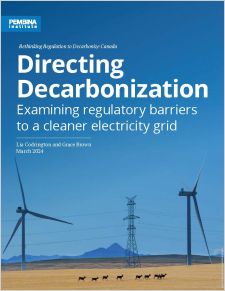
Canadian electricity systems must implement wide-ranging changes to meet decarbonization targets, and regulatory authorities can play a central role in facilitating this transition. However, regulatory structures as they currently stand are not well-suited to facilitate the scale of investments that are necessary to meet the nation's climate goals. Mobilizing cohesive regulator action towards the energy transition is especially challenging in Canada, where provinces and territories are responsible for managing the regulation and operation of their own electricity systems, resulting in 13 different approaches to regulation across the country.
Transitioning to a net-zero grid will require significant changes to system infrastructure and operations. To enable these changes, the regulatory structures that govern the electricity system must be updated.
Six key areas of need for regulatory change in the Canadian context are:
- Collaborative action
- Strategic direction and governance
- Faster and more inclusive processes
- Integration of new technologies
- Broader information sharing
- Affordability
Understanding opportunities for change begins with an understanding of the current systems of electricity regulation in Canada. This report is the first in our Rethinking Regulation to Decarbonize Canada series. It aims to uncover the regulatory bottlenecks that inhibit grid modernization and decarbonization in Canada and recommends potential solutions to address these barriers. Subsequent reports will focus on challenges and solutions specific to the electricity systems in Ontario, Alberta, and remote and Indigenous communities in British Columbia and the territories.


